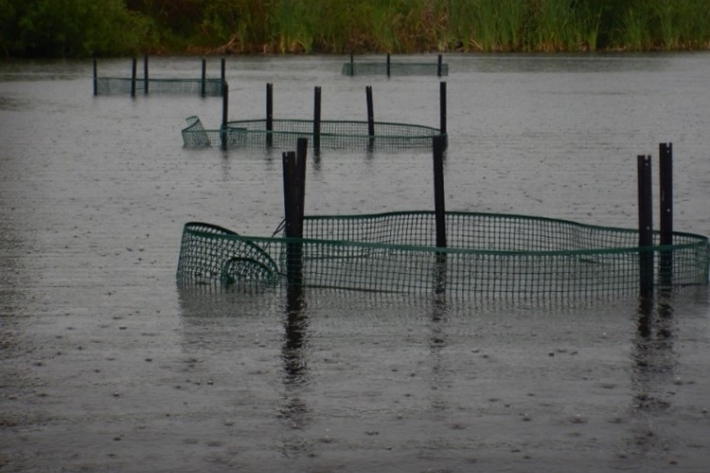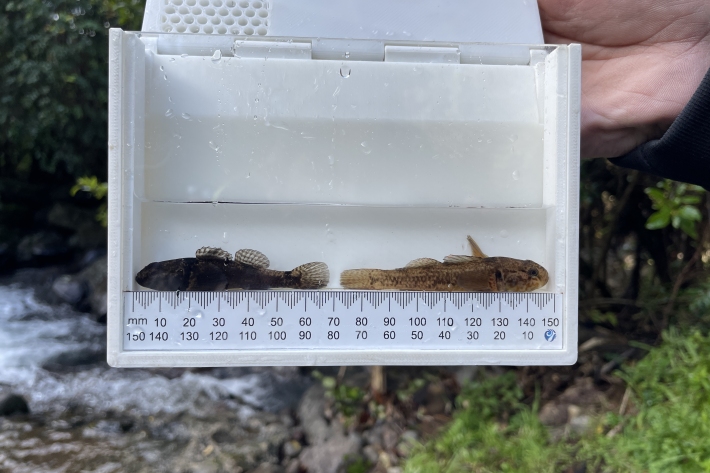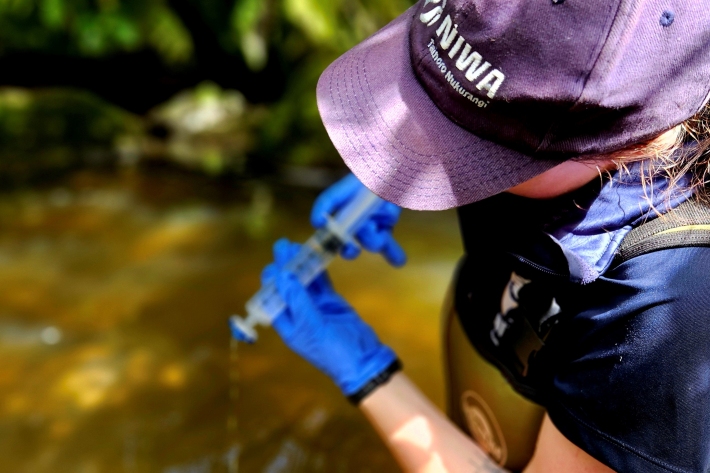27 March 2024
In this update we take a look at how native aquatic plants can be life rafts for our degraded freshwater lakes, whether the use of herbicides to treat invasive aquatic weeds is contributing to algal blooms, NIWA's new guidelines on eDNA and how 3D printing technology is helping save our native fish.
In this issue

Native aquatic plants life rafts for our lakes
A team of NIWA freshwater ecologists are researching the use of biodegradable plant mats to help reintroduce native aquatic plants to degraded freshwater lakes in Aotearoa, New Zealand.

A 3D Printer is helping save New Zealand’s endangered native fish
NIWA has developed a Photarium using the latest 3D printing technology to more safely identify and measure fish species that live in our waterways.
NIWA provides new guidelines on eDNA
The use of environmental DNA (eDNA) as a tool for biodiversity surveys is a rapidly advancing field with great potential.Is herbicide control of invasive aquatic weeds contributing to algal blooms?
In Aotearoa New Zealand, the control of well-established invasive aquatic weeds in lakes is most often undertaken with herbicides because it is cost effective. Herbicide use leaves the treated weed biomass decaying in the waterbody.
Staff Profile - Karine Borne
Karine Borne is a Water Quality Scientist based in Auckland.
